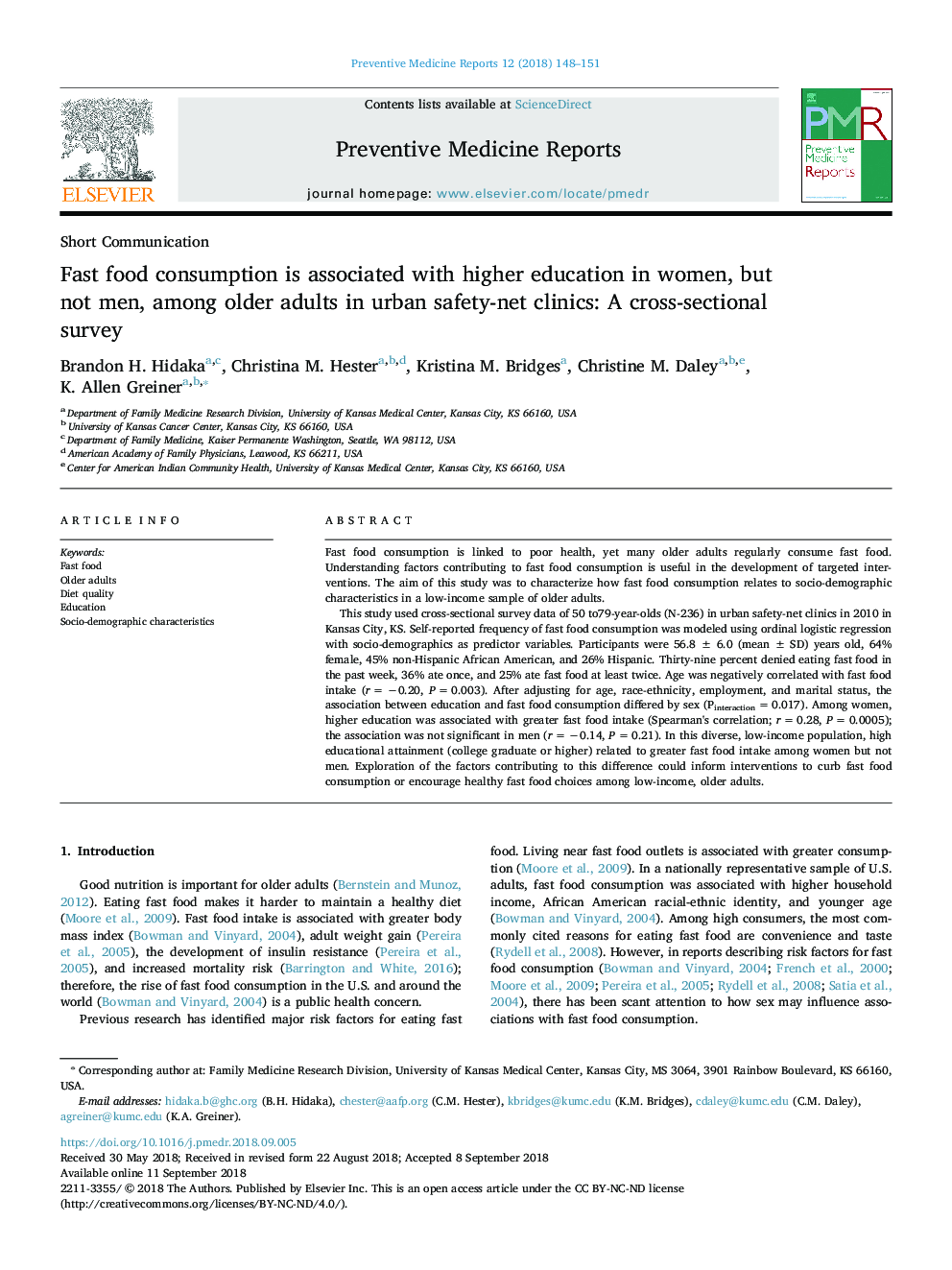| کد مقاله | کد نشریه | سال انتشار | مقاله انگلیسی | نسخه تمام متن |
|---|---|---|---|---|
| 11033531 | 1609080 | 2018 | 4 صفحه PDF | دانلود رایگان |
عنوان انگلیسی مقاله ISI
Fast food consumption is associated with higher education in women, but not men, among older adults in urban safety-net clinics: A cross-sectional survey
ترجمه فارسی عنوان
مصرف غذای سریع با آموزش عالی در زنان، اما نه مردان، در میان افراد مسن در کلینیک های ایمنی شهری همراه است: یک بررسی مقطعی
دانلود مقاله + سفارش ترجمه
دانلود مقاله ISI انگلیسی
رایگان برای ایرانیان
کلمات کلیدی
فست فود، بزرگسالان سالمند، کیفیت غذا، تحصیلات، خصوصیات اجتماعی و دموگرافی،
موضوعات مرتبط
علوم پزشکی و سلامت
پزشکی و دندانپزشکی
سیاست های بهداشت و سلامت عمومی
چکیده انگلیسی
This study used cross-sectional survey data of 50 to79-year-olds (N-236) in urban safety-net clinics in 2010 in Kansas City, KS. Self-reported frequency of fast food consumption was modeled using ordinal logistic regression with socio-demographics as predictor variables. Participants were 56.8â¯Â±â¯6.0 (meanâ¯Â±â¯SD) years old, 64% female, 45% non-Hispanic African American, and 26% Hispanic. Thirty-nine percent denied eating fast food in the past week, 36% ate once, and 25% ate fast food at least twice. Age was negatively correlated with fast food intake (râ¯=â¯â0.20, Pâ¯=â¯0.003). After adjusting for age, race-ethnicity, employment, and marital status, the association between education and fast food consumption differed by sex (Pinteractionâ¯=â¯0.017). Among women, higher education was associated with greater fast food intake (Spearman's correlation; râ¯=â¯0.28, Pâ¯=â¯0.0005); the association was not significant in men (râ¯=â¯â0.14, Pâ¯=â¯0.21). In this diverse, low-income population, high educational attainment (college graduate or higher) related to greater fast food intake among women but not men. Exploration of the factors contributing to this difference could inform interventions to curb fast food consumption or encourage healthy fast food choices among low-income, older adults.
ناشر
Database: Elsevier - ScienceDirect (ساینس دایرکت)
Journal: Preventive Medicine Reports - Volume 12, December 2018, Pages 148-151
Journal: Preventive Medicine Reports - Volume 12, December 2018, Pages 148-151
نویسندگان
Brandon H. Hidaka, Christina M. Hester, Kristina M. Bridges, Christine M. Daley, K. Allen Greiner,
